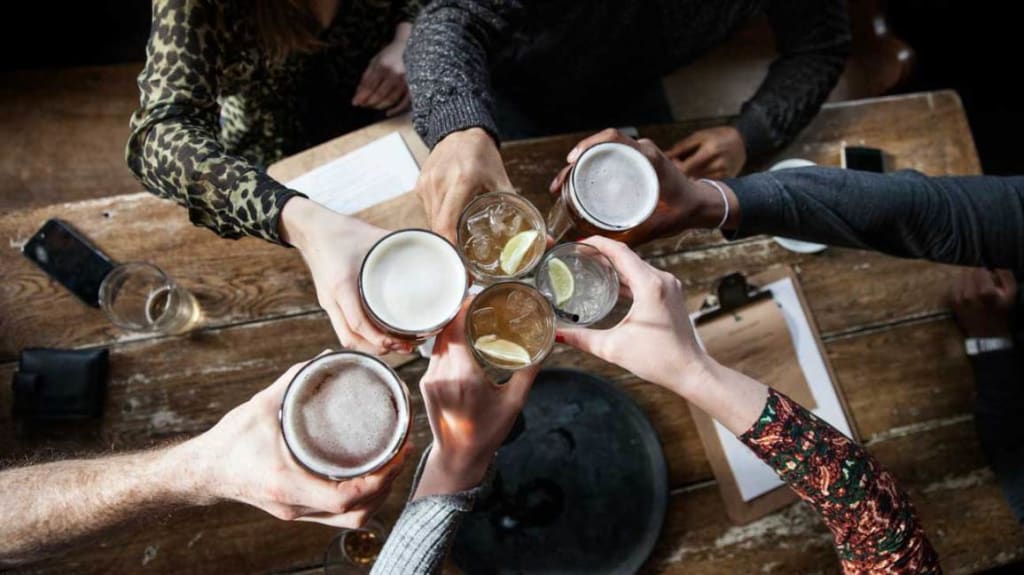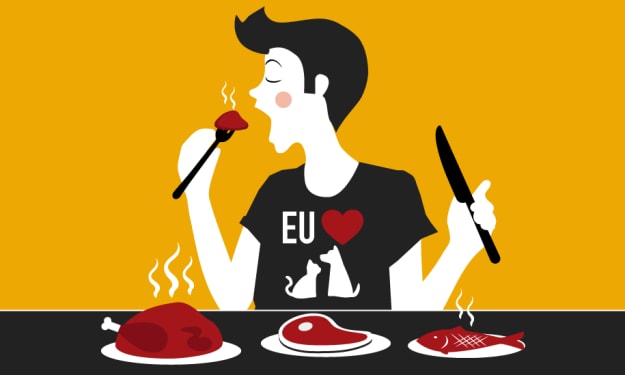Some brains "have a harder time saying no to alcohol"
Whhy is that?

Did you promise yourself that the next time you went out you wouldn't drink, but you ended up 'accidentally' taking several shots of tequila? Did you plan to go for just one drink and end up staying at the bar until dawn? Yeah, who wouldn't?
And after all, according to science, your brain could be the big culprit for this kind of behavior.
Alcoholism can be caused by dysfunction in a specific brain pathway that usually helps keep the drink under control. In the world, millions of adults struggle with alcohol use disorder, this disorder makes individuals unable to stop drinking, even when they know the potential risks for health, employment and relationships.
Problems with Alcoholism
"The difficulty in saying no to alcohol, even when it can clearly cause harm, is a defining characteristic of alcohol use disorders," said Andrew Holmes, researcher and head of the Laboratory for Behavioral and Genomic Neurosciences at the National Institute on Alcohol Abuse and Alcoholism (NIAAA) in the United States.
Many complex parts of behavior - emotion, reward, motivation, anxiety - are regulated by the cortex, the external layers of the brain responsible for complex processes, such as decision making. Unlike drugs such as cocaine, alcohol has extensive effects on the brain, making it very difficult to narrow a target for therapeutic treatment.
"We want to understand how the brain usually regulates drinking, so that we can answer questions about what happens when this regulation is not happening as it should," said Lindsay Halladay, professor of psychology and neuroscience at Santa Clara University, and the main author of the study.
To study how the brain regulates alcohol intake, researchers trained mice in the laboratory to press a lever in exchange for a reward for alcohol. Once trained, the mice were introduced to a new and conflicting situation: press the same lever to obtain alcohol and receive a slight electric shock in the feet, or avoid this risk, but lose the alcohol. After a short session, most mice quickly learn to avoid the shock and decide to give up alcohol.
The researchers first used surgically implanted electrodes to measure activity in regions of the cortex during this decision.
"We found a group of neurons in the medial prefrontal cortex that became active when the mice approached the lever, but aborted the lever pressure. These neurons only responded when the rodents did not press the lever, apparently deciding that the risk of shock was too great, but not when the mice chose alcohol over the risk of shock. That means the neurons we identified may be responsible for drinking or avoiding use," said Dr. Lindsay.
The medial prefrontal cortex (mPFC) plays a role in many forms of decision-making and communicates with many regions of the brain, so the team explored these external connections.
The team used optogenetics, a viral engineering technique that enabled them to effectively shut down precise brain pathways, illuminating the brain. They disrupted the activity of cells in the mPFC that communicate with the accumbens nucleus, an important area of the brain for reward, and discovered that the number of risky lever presses had increased.
"Shutting down this circuit restored the search for alcohol, despite the risk of shock. This increases the possibility that alcohol use disorder may result from some form of dysfunction along the way," Dr. Lindsay concluded.
The understanding of alcoholism in some people depends on identifying the neural pathway that keeps the consumption under control.
Once scientists understand exactly how the connection in the brain is different in individuals with alcoholism compared to those without the disorder, more effective treatments can be developed.
About the Creator
Fernanda Manuela Tomas Viegas
I'm a curious person. Love to read, i love to write and i love to tell stories, speacelly when we have small children






Comments
There are no comments for this story
Be the first to respond and start the conversation.